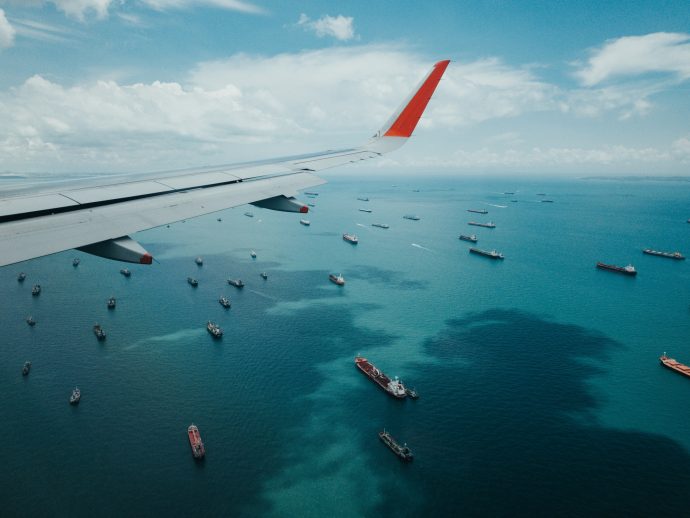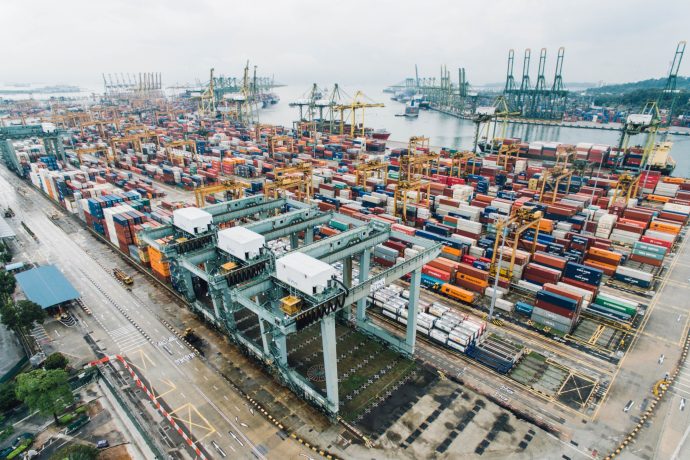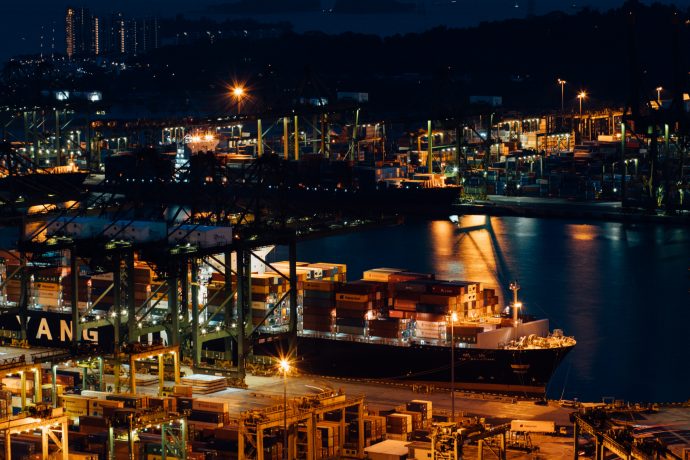As one of the world's liveliest maritime hubs, Singapore’s significance is set to grow as global economic activity resurges. An island nation at the crossroads of major shipping lanes connecting Asia with the rest of the world, Singapore is vital transhipment hub and a bedrock for global commerce - with the maritime industry a major driver of its economy.
Thanks to connections to over 600 ports in more than 120 countries, offering seamless global trade links and access to a wide range of maritime services, Singapore is the world’s busiest container transhipment port in the world in terms of tonnage, with over 130,000 vessel calls annually. It is also the top bunkering port.
Little surprise then, that the nation is so committed to furthering its maritime sector and supporting developments in the broader region. And this week (24-28 April), it will showcase that with the 17th Singapore Maritime Week which this year has the theme “Ambition Meets Action”. More than 40,000 government officials, industry leaders, academics and professionals from over 100 countries are expected to gather to discuss and take collective action to achieve the ambitions for innovation, decarbonisation and talent. The packed programme for the week centres around the Sea Asia Exhibition from 25 to 27 April at 25 - 27 April 2023 at Marina Bay Sands, and will also include a range of workshops, conferences and tours.
Beyond location
Singapore's success isn't solely due to geographic luck. To ensure efficient and seamless movement of ships and cargoes, the country has invested heavily in its infrastructure, including ports, terminals, logistics facilities and technology such as autonomous vessels and digitisation of shipping documents to enhance its maritime capabilities.
The small country's low tax regime and a highly skilled and educated workforce offer significant benefits adding to Singapore’s recipe for success for businesses supporting maritime and offshore activity.

GAC Singapore has been part of the country’s shipping and logistics landscape since 1981, and since then it has established itself as a leading player in the sector, offering integrated shipping, logistics and marine services to meet customers’ needs.
The company is the biggest ship agents in the territory, offering a complete range of ship agency and husbandry services and actively manage all types of port calls, from load & discharge, cruise and bunker only calls, through to dry dockings and floating production storage and offloading unit (FPSO) support. Its service coverage includes all anchorage and holding areas, ports, terminals and repair yards across Singapore.
The country is also home to the Group’s Asia Pacific & Indian Subcontinent regional office and one of the strategically located GAC Hub Agency Centres offering efficient port calls management across the region using a centralised approach for customers.
On the logistics side, GAC Singapore serves as a single point-of-contact for sea and air freight, ship spares delivery, events & project logistics, end-to-end warehousing/distribution and end-to-end supply-chain solutions.
“Being a ship agent with in-house logistics and a global network allows GAC to consolidate requirements and have better coordination and control over customers’ supply chains from start to end. This saves them time and money,” says Sofie Bager, GAC Singapore’s Managing Director.

Supporting Asian development
In recent years, there has been a surge in offshore activity elsewhere in Asia. And with places like Vietnam and Taiwan seeking to massively expand their wind power capacity, Singapore is playing a critical role as a major maritime hub supporting such activities.

“We have witnessed a rapid increase in offshore projects and activities taking place in this region before and after the pandemic,” says Gene Lee, GAC Singapore’s Business Manager - Shipping Services.
To meet growing demand, GAC Singapore actively shares its expertise in port management, logistics, shipping, marine and infrastructural support with its offices across Southeast Asia.
"The country’s importance as a global shipping hub extends beyond its borders,” adds Gene. “We have good infrastructure here to support developments in the broader Southeast Asia region. For example, customers have used our shipyards to carry out modifications and repairs for their vessels for projects in Australia, Thailand and Vietnam.”
Last year, GAC Singapore handled the successful delivery of two FPSOs for a global supplier and operator of offshore floating platforms to Brazil.
Looking forward
Singapore will continue to invest in its maritime industry and explore new opportunities to enhance its competitiveness as an international maritime centre. Development of Tuas Port is continuing afoot, and once completed in the 2040s, it will be the world’s largest fully-automated terminal, with a handling capacity of 65 million twenty-foot equivalent units (TEUs).
To further cement its position as a global maritime hub, Singapore is also developing an artificial intelligence-enabled Next Generation Vessel Traffic Management System to strengthen vessel navigational safety, providing full maritime 5G coverage in major anchorages, fairways, terminals and boarding grounds by mid-2025.
